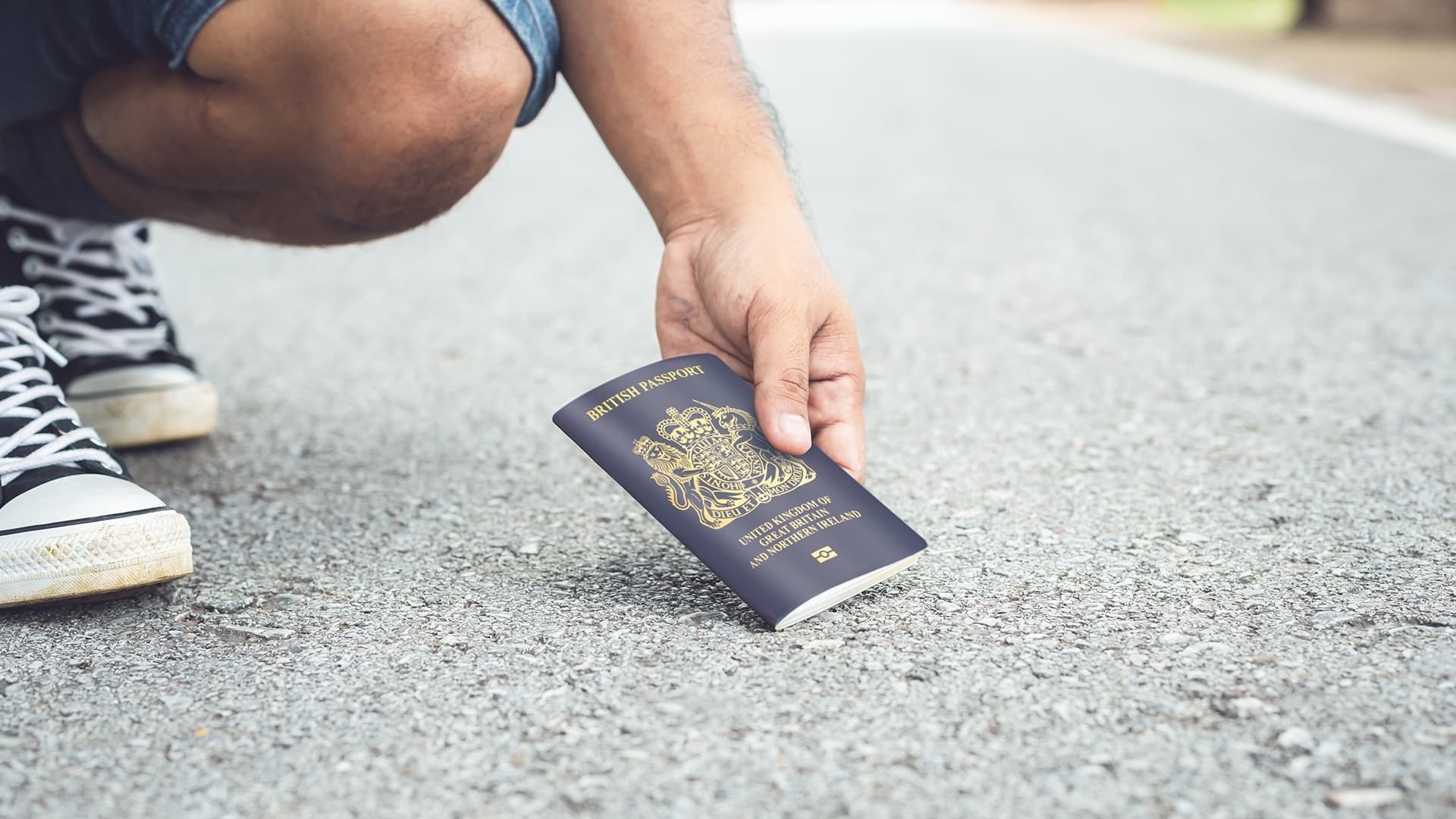
As a valid form of ID, passports can be used for a variety of reasons beyond going on holiday – for collecting parcels for example, for proof of age at the cinema or when buying age-restricted items at the supermarket or convenience store.
But have you ever stopped and thought about the consequences of losing your passport?
Lost and stolen passports
When you’re taking your passport out of home it can easily be lost or stolen in transit. In fact, this happens more often than you might think – around 400,000 of these important documents disappear each year – costing British families hundreds of thousands of pounds (£75.50 for an adult, £49 for a child) in replacements.
With the rising cost of living, the loss of a passport can have a big impact on your finances – plus there’s a waiting time of up to 10 weeks, leaving a high volume of people without this important document and even at risk of missing their holiday if they need to apply for a replacement passport.
Greater risk of identity theft
Losing your passport is not only an inconvenience and costly to replace, but it can leave you extremely vulnerable to identity theft and fraud. Think about all of the personal information on your passport: your name, date and place of birth, nationality, photo, signature.
Genuine passports can end up for sale on the dark web – a place where they’re accessed within minutes, leaving people vulnerable to all manner of identity theft.
Someone having access to all of this personal information can easily pretend to be you to open bank accounts, apply for credit cards, set up social media accounts or buy things in your name. And the first you might know about this is when an unexpected credit card bill comes through the post.
A safer way to prove your identity
An alternative to taking out your valuable passport, is using a digital ID (like Yoti or Post Office EasyID) which offers a safe and private way to prove your identity. We encourage businesses to only ask for the details they need, so when you verify your identity with them, you can feel safe sending less data. It’s a new way to show ID that doesn’t reveal everything about you. And this is how it should be. It seems bizarre that in 2022 we’re still being asked to show a full ID document, like a passport or driving licence, just to prove our age.
Each individual’s information (for example, their name and date of birth) are not stored together as a single record as they are in traditional databases. Instead they are randomly dispersed and stored separately, making it much harder for data to be useful in the event of a breach (because a hacker would only have access to one piece of information like a date of birth, but have no way to link this to the other pieces of personal information).
The key to unlock and access the data is stored safely on an individual’s phone, not in our database. So if someone wanted to access your personal information, they would have to steal your phone, log into the phone (with your PIN, fingerprint or Face ID), then access your digital ID account (again using your face or PIN). Compare this to someone having your passport – all your information is in their hands. Quite literally.
The benefits of digital identity
We’re already seeing a rise in the use of digital IDs – Yoti and Easy ID are now being accepted by UK cinemas, to give young people an easier way to prove their age when they want to watch an age restricted film. They can choose to just share an ‘over 15’ or an ‘over 18’ attribute, protecting their privacy and allowing them to sit back and enjoy the film without the concern of keeping a passport safe.
This also reduces the pressure on cinema staff to accurately check IDs. Counterfeit documents with holograms are available to buy online for as little as £10, and the increasing quality and availability of high quality fake IDs makes it very challenging for them to confidently check someone’s age.
Under new legislation, digital IDs can now also be used to complete Right to Work checks. This allows employers to ensure that new hires have a right to work in the UK quickly and easily online or via a digital ID app (such as the Post Office EasyID). This increases efficiency, gets people into jobs faster and reduces recruitment times. Individuals can prove their right to work from the comfort of their home or whilst working in a different part of the country (helpful if they are planning to relocate for work). This is not only more convenient but safer too – as they do not have to physically provide (and risk losing) paper documents. Right to Rent and DBS checks can be completed digitally too.
Yoti and EasyID are also accepted in convenience stores throughout the UK – a safer way to buy age restricted goods including lottery tickets, energy drinks and cigarettes. In the future, we might see digital IDs being accepted at supermarkets, allowing shoppers to prove their age when buying age-restricted items at the self-checkout without waiting for assistance or showing physical ID documents..
Digital IDs are not only safer, they are also more convenient. The majority of us always carry our phones around. After all, we now use them for so many things each day – to listen to music, to make payments, to chat to our friends, to shop online and access our emails.
Having a digital ID on our phone means we don’t need to remember to put our passport in our bag or pocket before we head out the door. You can relax, knowing your important and highly valuable ID documents are safe at home.
